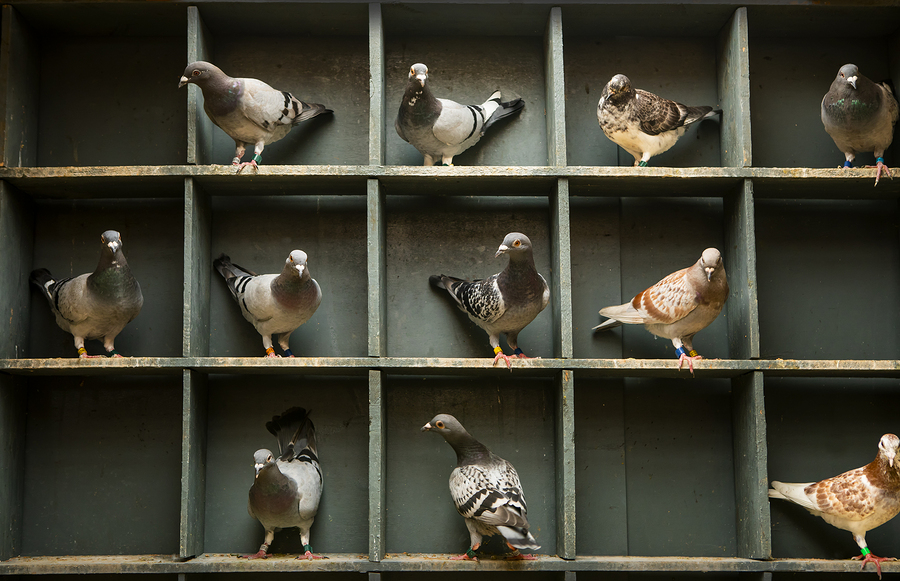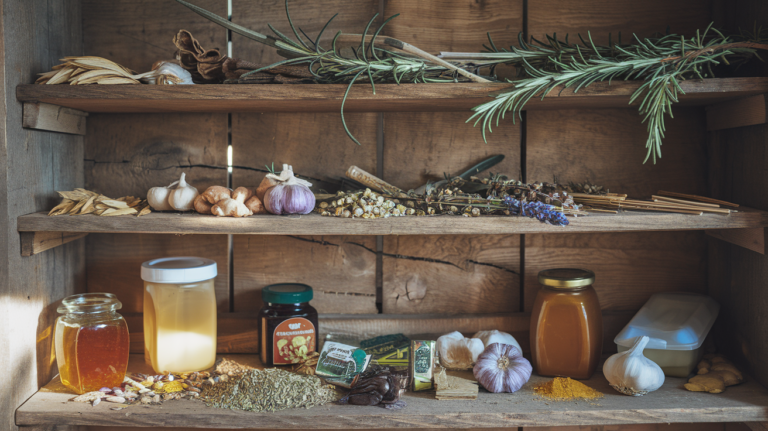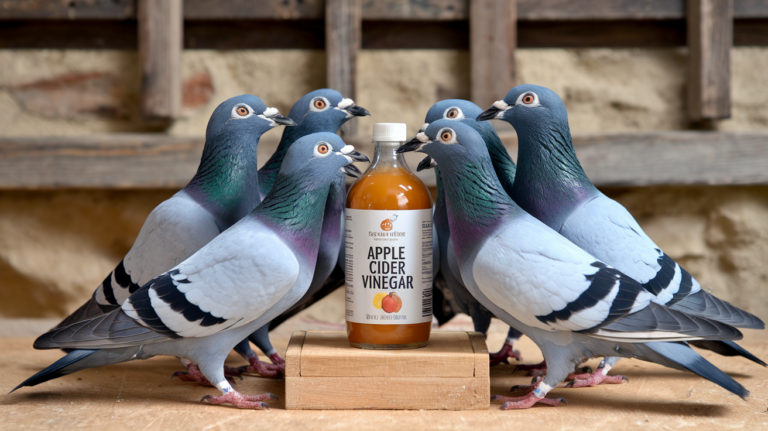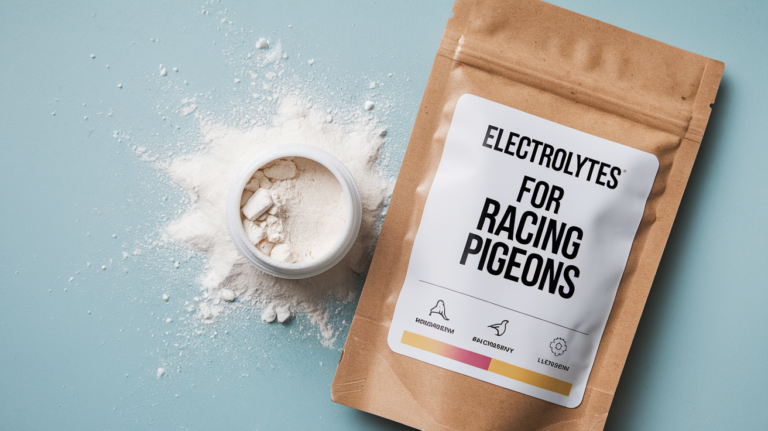
If you want to compete at the highest level in pigeon racing, pigeon racing loft health is the foundation of success. It doesn’t matter how well-bred your pigeons are or how rigorous your training program is—if your birds are not in peak health, they won’t perform to their full potential. Healthy pigeons fly faster, recover quicker, and remain competitive over the long haul.
In this guide, we’ll break down the key components of maintaining optimal health in your pigeon loft, helping you create a winning environment for your birds.
The Four Pillars of a Winning Loft
To consistently place at the top in pigeon racing, your loft must meet four critical requirements:
- High-Quality Birds – Start with the best genetics you can acquire. Winning pigeons come from strong bloodlines.
- Conditioned Birds – Your birds need to be physically prepared through proper diet, training, and care.
- Motivated Birds – A pigeon that wants to come home fast is a pigeon that wins races.
- Super Healthy Birds – The single most important factor. Even the best pigeons won’t win if they aren’t at peak health.
While all four of these factors matter, health is the ultimate equalizer. Many pigeon fanciers invest in top-tier birds and intense training programs but fall short because their pigeons operate at a suboptimal level due to hidden health issues.
What Defines a Truly Healthy Racing Pigeon?
Many pigeon fanciers assume their birds are healthy just because they look good, fly well, and have clear eyes and wattles. However, appearances can be deceiving. Pigeons are instinctively wired to hide illness—a survival mechanism that protects them from predators in the wild. A bird can seem fine on the outside while battling internal infections, parasites, or bacterial imbalances that sap its energy and endurance.
There are three levels of pigeon health:
- Poor Health – These pigeons show obvious signs of illness. They appear lethargic, lose weight, and underperform. Most fanciers don’t race pigeons in this condition.
- Apparent Health – These birds seem perfectly fine but are harboring hidden infections that reduce performance. This is where the majority of pigeon racers unknowingly keep their birds.
- Super Health – The elite level where top racers maintain their pigeons. These birds perform at their absolute best week after week.
Achieving super health is the ultimate goal, and it requires more than just feeding a good diet and providing occasional medication. The secret lies in reducing stress and optimizing loft management.
Key Factors That Affect Pigeon Racing Loft Health
To create an environment where your birds thrive, focus on the following areas:
- Loft Hygiene
Your loft is the foundation of your pigeons’ health. Poor loft hygiene leads to disease outbreaks and reduced race performance. Here’s how to maintain a clean loft:
- Ventilation – Pigeons have highly sensitive respiratory systems. Dust, ammonia from droppings, and poor airflow can damage their lungs and reduce performance. Design your loft so fresh air enters from the floor and exits through the top, avoiding direct drafts.
- Daily Cleaning – Scrape droppings daily to prevent reinfection of coccidia and worms. Parasites in droppings become infectious after 48 hours, so regular cleaning is crucial.
- Moisture Control – Dampness is the enemy of pigeon health. Keep the loft dry by preventing rain from entering, fixing leaks, and using moisture-absorbing materials such as compressed wood pellets.
- Disease Prevention
Even pigeons that appear healthy can carry infections that impact their performance. Common diseases to watch out for include:
- Coccidiosis – A parasitic infection that weakens the immune system and reduces endurance.
- Trichomoniasis (Canker) – Affects the throat and digestive system, leading to poor race results.
- E. coli & Bacterial Infections – Caused by contaminated food and water.
- Paratyphoid (Salmonella) – Often spread by rodents and a major threat to racing pigeons.
Prevention is key. A well-structured health program includes routine deworming, canker treatment, and a balanced probiotic regimen to support gut health.
- Proper Nutrition & Water Management
- Clean Food & Water – Always provide fresh, high-quality grain and change water daily. Dirty waterers are the fastest way to spread disease.
- Electrolytes & Supplements – Support recovery after races and maintain peak condition.
- Probiotics – Keep the digestive system strong and resistant to harmful bacteria.
- Stress Reduction & Loft Management
Stress weakens the immune system and leads to inconsistent race results. Reduce stress by:
- Avoiding Overcrowding – Less is more. A loft with fewer pigeons is easier to manage, cleaner, and promotes better health.
- Temperature Control – Minimize drastic temperature changes by insulating the loft and using heating when necessary.
- Quarantine Protocols – Always quarantine new pigeons before introducing them to the main loft. Many birds carry diseases without showing symptoms.
- Rodent & Insect Control – Mice spread paratyphoid, while insects can transmit worms. Keep them out of your loft.
Final Thoughts: The Competitive Edge in Pigeon Racing
Winning in pigeon racing isn’t just about having good birds—it’s about maintaining superior loft health. By focusing on cleanliness, disease prevention, proper nutrition, and stress reduction, you can transform your loft into an environment where pigeons consistently perform at their peak.
Many fanciers are unknowingly keeping their birds in apparent health instead of super health. If you take the extra steps to optimize your loft conditions, you’ll gain a major competitive advantage. Small changes in loft management can lead to big improvements in race results.
Commit to improving your pigeon racing loft health, and you’ll start seeing the difference in your birds’ speed, endurance, and overall performance. It’s the foundation of success in this sport—don’t overlook it!








